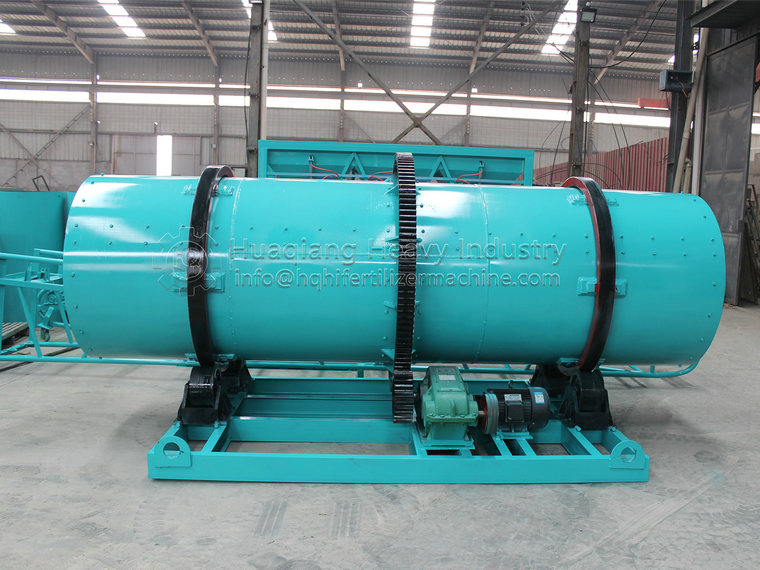The NPK fertilizer production line is a complex system composed of multiple processes, and each link may experience malfunctions, affecting overall production efficiency and product quality. The following are some common faults and their causes on NPK fertilizer production lines:.jpg)
Raw material pretreatment section
Crusher blockage: Excessive moisture content or high levels of hard impurities in the raw materials may cause the crusher to jam or block.
Uneven mixing: incorrect proportion of ingredients or insufficient mixing time, resulting in incomplete fusion of raw materials and affecting the quality of the finished product.
Granulation section
The granulator cannot granulate properly: raw materials that are too dry or too wet, improper addition of adhesives, severe wear of fertilizer granulator molds or cutting tools can all lead to granulation failure.
Inconsistent particle size: The parameter settings of the fertilizer granulator are unreasonable, and the supply of raw materials is unstable, resulting in uneven particle size.
Drying and cooling section
Excessive or insufficient drying: The temperature control of the fertilizer dryer is inaccurate, resulting in particles that are too hard or still contain too much moisture.
Low cooling efficiency: Poor ventilation of the cooling fan and insufficient flow of cooling medium result in slow cooling of particles, which may cause subsequent agglomeration.
Packaging section
Inaccurate packaging scale: The calibration of the electronic scale has failed, resulting in packaging weight deviation exceeding the standard.
Inadequate sealing: Improper pressure adjustment of the sealing machine or quality issues with the sealing material can result in poor packaging sealing.
Public facilities and auxiliary equipment
Belt breakage or deviation: The belt is aging, the tension is insufficient, or the rollers are damaged, resulting in the interruption of material transportation.
Decreased efficiency of dust removal system: filter blockage or fan failure, dust accumulation, affecting the health of the working environment and equipment operation.
Overall control system
Electrical faults: Short circuits in the circuit, burnt out contactors, malfunctioning sensors, and other issues that result in reduced automation and inconvenient operation.
Software error: PLC program error, abnormal data communication, affecting production line monitoring and scheduling.
In the face of these problems, prevention and timely repair are equally important. Establishing a comprehensive equipment maintenance plan, regularly checking the wear and tear of key components, timely cleaning filters and pipelines, and maintaining good lubrication are all key measures to avoid failures. In addition, training professional technicians to master the working principles and emergency response skills of equipment is also an indispensable part of ensuring the smooth operation of NPK fertilizer production lines. When encountering difficult technical problems, it is necessary to promptly contact equipment suppliers or third-party technical service agencies for professional guidance and support.
.jpg)

.jpg)





